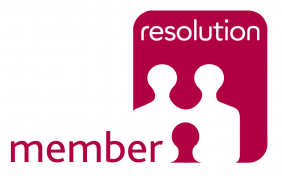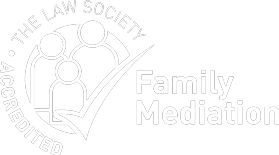Collaborative Law and Mediation
A relationship breakdown can have profound and long-lasting effects on a couple, on their children, and on the wider family. It can even affect social networks, with friends intentionally or otherwise siding with one party.
While there is no way of eliminating the emotional and practical challenges of separation, divorce, or dissolution, there is growing awareness of the benefits of taking as constructive an approach as possible to the unavoidable formalities. Long gone are the days of bitter, acrimonious legal battles being the anticipated way of achieving a divorce and settlement. Modern family law offers a real, and very successful, alternative.
Originally named Alternative Dispute Resolution, but more recently labelled ‘Dispute Resolution’ (‘DR’), the idea is that couples can choose to sort out issues around money, property, and – most importantly – their children’s care and wellbeing – without involving the courts. This places control in a couple’s hands; something that usually makes for workable solutions that each party will stick to. By agreeing terms, rather than having them imposed, positive foundations for the future can be laid.
Two popular types of DR are collaborative law and mediation. They are similar, but distinct. They both require the parties to consent to embark on the process and to want to deal constructively with the separation. They have the same aim: to resolve issues without involving the courts. However, the route to that resolution is different, depending on the type of DR that best suits your situation.
Collaborative law is a process of working together to talk about and agree on the way forward. The parties and their solicitors (trained collaborative lawyers) meet face-to-face over a series of meetings to try to resolve the practicalities around the separation. The discussions must be full and frank – it wouldn’t work otherwise – and so both parties must be prepared to open up about everything, from their finances to their future plans and needs. The lawyers are there to help steer the discussions, to advise on the legal positions, and to make sure that everything that needs to be decided is dealt with. Once the parties are happy with the terms, they will be formalised in a legally binding agreement. That final stage is vital to ensure that the resolution and each party’s rights and commitments are properly recorded, so that there is certainty going forward.
Mediation has the same aim. However, the process differs in the way in which it is managed. Rather than it being steered by the parties and their lawyers, a trained mediator is in charge. He or she will usually be a lawyer, independent of the parties, and who has undergone specific training in helping to guide difficult situations towards resolution – but, crucially, the mediator will not advise either side on their legal position. In contrast to the collaborative law position, the parties’ lawyers are in the background. We are less involved in the settlement discussions, and do not sit alongside our clients in the meetings. The parties meet with the mediator by themselves, reverting to the lawyers when necessary during the mediation process.
The point to remember about all of this is that one size does not fit all. In some circumstances, mediation will be the best way forward. In others, it will be collaborative law. And in some, the court process will be the necessary (and perhaps only) way of sorting out a couple’s affairs. Remember that DR only works where the parties want it to. I would add to that that it requires a degree of civility between the parties. There is certainly a need for people to try to rise above what is often intense animosity towards one another in order to work towards a resolution – one that will enable each of them, and those close to them, to move on.
That can be incredibly difficult to do; I don’t doubt that. And I have been involved in many cases in which ex-partners are so full of bad feeling towards one another that the idea of agreeing to cooperate, let alone to make any concessions in the other’s favour, would be unthinkable. Those cases often end up in court. And that is not necessarily a bad thing. The court process can be a very effective way of resolving matters between couples. However, its downsides come not just in the imposition of settlement terms. It can be expensive and, more importantly, it dissolves the parties’ relationship even further.
We will invariably urge our clients to carefully consider choosing the DR route whenever this is appropriate. Of course, the decision is not just in their hands; their ex-partner would need to agree to taking that route, too. However, when two people recognise the positive outcomes that can be achieved through DR, this usually leads to a far better experience for all.
If you would like to discuss your situation, and whether DR might work for you, please contact me. I’d be happy to help.
For advice about divorce, or any Family Law issue contact me at [email protected] or on 020 3811 2894










